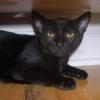Nfkb1 knockout mice experience accelerated aging:
Nfkb1/p50 and mammalian aging
Bakhtiar Yamini
Oncotarget. 2015 Feb 28;6(6):3471-2.
PMID: 25704886
"In sum, we find that loss of p50/Nfkb1 leads
to a decrease in cellular apoptosis and an increase in
senescence that is associated with premature animal aging.
Interestingly, the increase in aging is not associated with an
increase in tumor formation possibly because the increased
cellular senescence acts to suppress tumor formation. p50
is ideally situated to modulate the response to a universal
process such as RS [replication stress] because it is not only constitutively
produced and found in virtually all tissues, but because it
is also the primary DNA-bound NF-κB subunit present at
baseline. While it is difficult to definitively say whether
the loss of p50 DNA binding with age is a cause, or
consequence, of aging, our data nevertheless emphasize
the importance of p50 to aging and indicate that further
examination of this subunit is warranted."
Loss of Nfkb1 leads to early onset aging.
Bernal GM et al
Aging (Albany NY). 2014 Nov;6(11):931-43.
PMID: 25553648
" ... these data show that loss of Nfkb1 leads to early animal aging that is associated with reduced apoptosis and increased cellular senescence. Moreover, loss of p50 DNA binding is a prominent feature of aged mice relative to young. "
Edited by lemonhead, 17 April 2015 - 01:36 PM.
















































